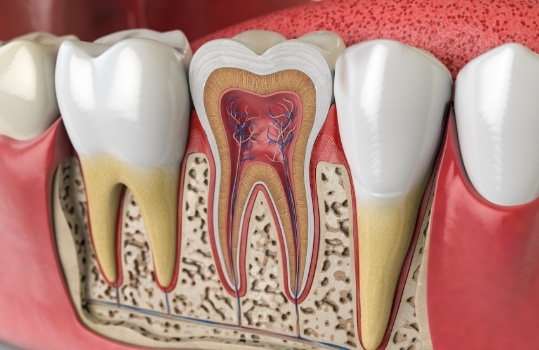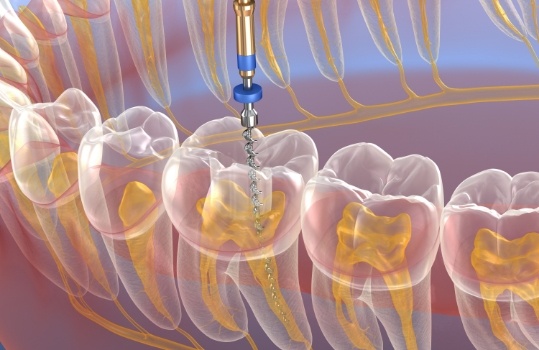Root Canal Treatment Roselle Park
Relieve Hurting Teeth

Your natural tooth has several important layers, including a vulnerable inner pulp. When this area is exposed to infection or severe damage, it can threaten the tooth’s livelihood and eventually result in the need for extraction. Thankfully, our Roselle Park Dental & Implants dentists and team members can save the day in many cases with root canal treatment. This service can restore health and function to the struggling tooth, and its high success rate means that you’ll likely be able to maintain your newly treated tooth for a lifetime. Please contact our office in Roselle Park, NJ, today to schedule your first appointment!
Why Choose Roselle Park Dental & Implants for Root Canal Treatment?
- Same-Day Emergency Treatment Available
- Enhanced Imaging for Accurate Planning
- Trained Dentists Who Care About Patient Comfort & Safety
Do I Need Root Canal Treatment?

Common indications that root canal treatment may be necessary include the following:
- If you have an abscess (or ‘pimple’) located on the gum tissues
- If you’re experiencing excessive sensitivity to hot or cold temperatures in certain areas of the mouth
- If you’re experiencing significant, disruptive pain in a certain tooth
- If your gum tissue is overly tender to the touch or swollen in certain areas of the mouth
However, it is important to remember that sometimes, no noticeable symptoms are present. That’s why attending regular checkups with a trusted dental team is so important for your ongoing oral health.
What Happens During Root Canal Treatment?

During root canal treatment, an opening will be made in the tooth so that the diseased pulp and infectious bacteria can be safely removed with the help of special instruments. Once we’ve thoroughly cleaned the treated area, a safe, biocompatible substance will be inserted as a substitute before the structure is thoroughly sealed to minimize the risk of further damage. As a final touch, a custom-made restoration (usually a crown) is placed on top of the tooth to restore its natural function and prevent gradual breakage.
